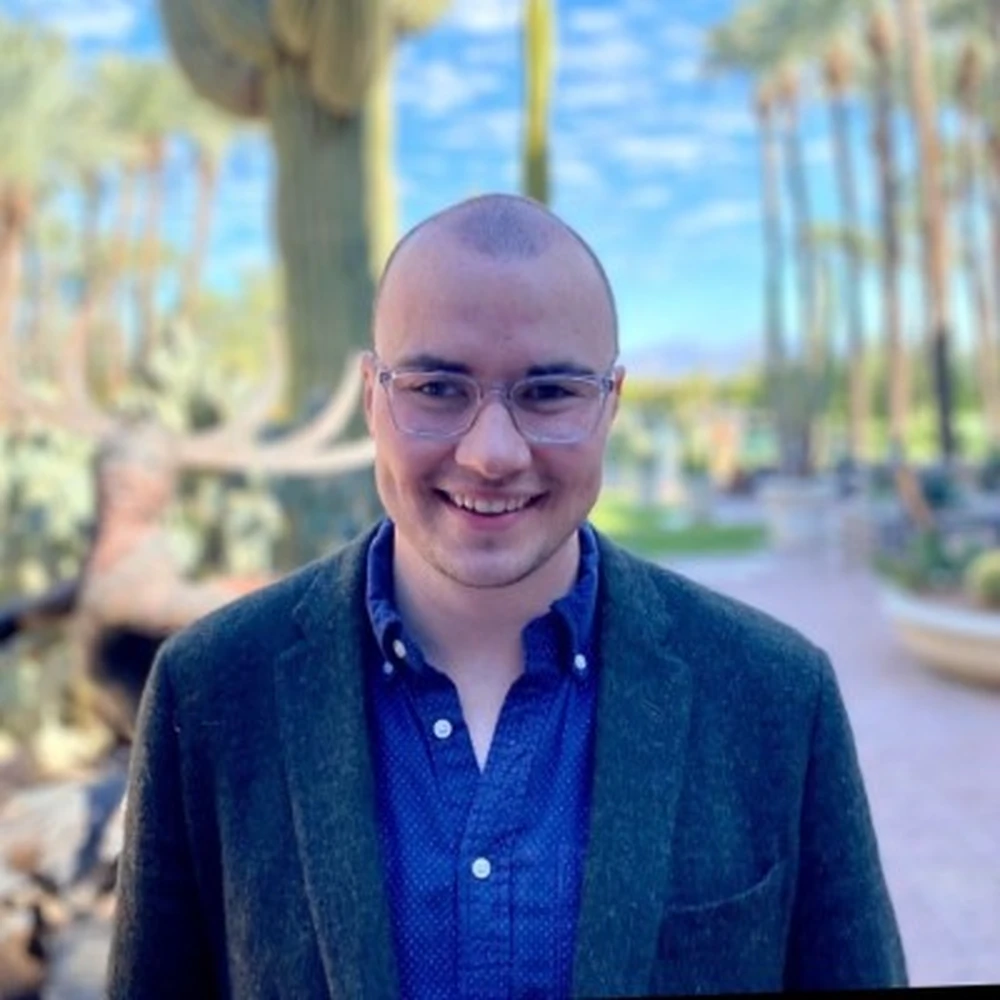
Meet Thomas Dowling (BA,'18, history and political science), the co-founder and former CEO of TaxProper, a property tax software start-up acquired by Opendoor in 2022. Dowling is currently the director of TaxProper under Opendoor. He was also appointed by Illinois Governor J.B. Pritzker to be the commissioner of the Illinois Student Assistance Commission, which provides tuition assistance to low-income college students. He has also served as an advisor to former Chicago Mayor Lori Lightfoot. He graduated from the University of Illinois with a Bachelor's degree in history and political science in 2018. He said his history honors thesis taught him everything he needed to know about being an entrepreneur. Read on for a Q&A with Dowling to learn more about his career.
Why did you decide to pursue a degree in history?
I had a fantastic A.P. US History teacher in high school named Mr. Hardy. Instead of the dry lectures occasionally punctuated by tests evaluating rote memorization I was accustomed to, he taught history like a living breathing argument we participated in. His class was also the first time I learned by interacting with secondary sources written by academic historians, as opposed to textbooks. When I learned Illinois awarded course credit for reading books I enjoyed consuming recreationally in high school, I thought I was getting away with something. Majoring in history was an easy choice!
Did you pursue higher education after undergrad?
I was awarded the Rhode Scholarship my senior year, which fully funds post-graduate studies at the University of Oxford. I planned on deciding between law school or a DPhil after completing my first year at Oxford. Concurrently, I started working on a project that eventually grew into a software startup called TaxProper with another classmate from Illinois. We were accepted into a startup accelerator called YCombinator halfway through my first year at Oxford. I decided to focus on the company and moved to the Bay Area to raise money for the business. I flew back and forth enough times that my absence went unnoticed and graduated with an MSc in Comparative Social Policy in the summer of 2019.
I don’t endorse approaching grad school this way.
What is your current career and how does your degree in history inform your work?
My cofounder and I grew TaxProper for several years before successfully exiting to Opendoor, a publicly traded company, in 2022. We ran the business as a subsidiary within Opendoor after the sale and continue doing so today. Building a startup was by far the most fun I have had professionally, and I know I have at least one more company in me.
I use the analytical skills I developed as a history student every day. Entrepreneurs develop a working theory that their product or service will solve a problem in a particular market, update their theory as they uncover new information from customers in that market, and convince potential investors, employees, and customers their theory is right. My honors thesis taught me everything I needed to know!
What do you enjoy about your work?
Building a successful team and growing alongside them is the best part of building a business. The first ten people we hired were at my wedding and many of my closest friendships were forged over late nights at work. Intellectually, I also enjoy the process of finding out if a theory about a particular market is right and adapting when I inevitability discover I am wrong.
What does a typical workday look like for you? What is the most interesting aspect of your job?
As organizations grow, the people within them tend to spend more time in internally focused meetings. I try resisting the natural pull as much as is feasible, so I can spend time talking with and learning from customers. I also think it's important for leaders to model excellence in their own individual work, so I will directly involve myself with at least one tactical problem the business is facing at any given time.
Software startups are interesting because the customer insight-to-product feedback loop is so fast. You quickly learn if your intuitions are correct. It’s frustrating to be wrong, but more satisfying when you’re right.
What advice do you have for students interested in pursuing work in your field?
The most common startup failure mode is getting stuck in the planning phase; 90% fail before getting a single customer. The only way to learn if a particular idea will work is to launch the product and get it in front of your customer.
The right history analogy here is the difference between primary and secondary sources. They are easier to consume, but you can't rely on secondary sources to make a historical argument. You need to get the facts yourself, directly from customers.
What is your proudest achievement?
After graduating, Governor Pritzker appointed me to serve as Commissioner for the Illinois Student Assistance Commission, the Illinois state agency tasked with providing tuition assistance to low-income college students. Our main program is the Monetary Award Program, a state-funded grant. If a college student qualifies for a PELL Grant, they generally will qualify for MAP.
I largely financed my education at Illinois through scholarships, grants, and part-time work. When I was a student at Illinois, MAP went unfunded for several years and I saw first firsthand the impact of MAP's defunding on my classmates and the broader UIUC community. During my tenure as Commissioner, ISAC increased its annual student assistance award from $450M+ to $600M+ and increased the per-student total allowable MAP award from $5,496 to $7,200. MAP funding was the biggest political issue on campus when I was an undergrad, and I'm proud I played a role in restoring MAP funding after I left.